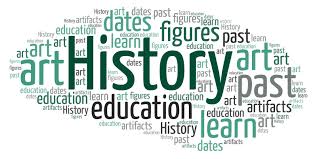History
BA(hons) and BA(programme)- Delhi University

History Faculty
On this page, we are providing the B.A. History (Hons) Syllabus 2024, covering important topics such as ancient, medieval, and modern history, historical research methods, and world civilizations. This syllabus offers a clear outline of the course structure, helping students prepare for careers in fields like archaeology, academia, public history, and civil services.
Notice
“The syllabus PDFs available on this website are sourced from Delhi University’s official resources. We do not claim any ownership or rights over these materials. They are shared for informational and educational purposes only. For official and updated syllabi, always refer to the Delhi University website (du.ac.in). If any content violates copyright, kindly contact us for prompt removal.”
Syllabus of History (Hons.)
Here we provide the syllabus for B.A. (Hons) History, which explores major historical events, civilizations, and cultural movements. Students will study key periods from ancient to modern times, with a focus on critical analysis and interpretation of historical sources. The curriculum fosters a deep understanding of global history, preparing students for careers in research, education, and public service.
Syllabus of History (Prog.)
This combination degree integrates historical studies with another subject, enabling interdisciplinary perspectives. Students examine historical contexts while developing complementary skills in allied fields, preparing for diverse career paths in education, civil services, cultural preservation, and research-oriented professions.
Syllabus of History DSE
These advanced papers allow specialization in focused areas like medieval Indian society, modern world history, gender studies, or economic history. Students develop expertise through rigorous examination of archival materials, theoretical frameworks, and comparative historical analysis.
Syllabus of Generic Electives
Designed for non-History students, these courses provide foundational knowledge of significant historical events, movements, and personalities. The papers cultivate historical consciousness and analytical abilities through thematic studies of colonialism, revolutions, cultural exchanges, and nation-building processes.
Contact Us
If you have any questions regarding the Syllabus then do comment and give your feedback and keep supporting us and also follow us on social platforms so that you do not miss out any important information.

Have Any Questions?
We’re here to help! Feel free to reach out to us with any questions or concerns, and we’ll get back to you as soon as possible

